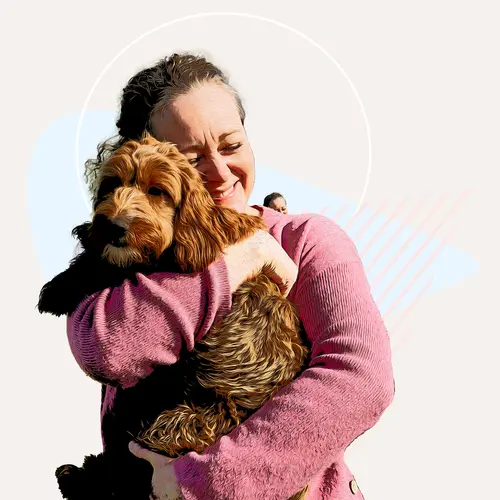A horse may not drink when they are led to water, but puppies and dogs are a different story -- if they’re properly schooled.
Dog training school teaches a variety of essential commands and techniques that can make your canine a happy camper and your life easier in the process.
Here's expert advice on when to sign up your pup, how to choose obedience training, and whether to consider some personal coaching, as well as school, to encourage good behavior in your dog.
Start Young
Puppies between 8-12 weeks make the best students because they haven’t formed bad habits, although owners don’t typically sign up for class until their pets are between 6-12 months of age, says Pamela Reid, PhD, CAAB, vice president of the Animal Behavior Center at ASPCA Animal Health Services in Urbana, Ill.
But "most people only begin dog training after their puppy starts to annoy them, or their teenager is really pushing the limits," Reid says.
"It’s important to remember that puppies are like little kids. And like little kids, they're uncoordinated, easily distracted, and gentle," says Steven Applebaum, president and director of Animal Behavioral College, a school in Northridge, Calif., that trains dog trainers via the Web and externships at shelters throughout the U.S.
Applebaum suggests attending obedience class every year or two -- three years, at the most -- and practicing school lessons at home. "It’s a positive activity, and a great way to bond with your dog," he says.
Reid agrees. "The more you go, the better you get," he says.
What to Expect in Dog Obedience Class
Beginner classes typically teach your dog how to:
- Sit, stay, lie down, and roll over
- Not to pull on the leash while walking
- Not to jump on other dogs or people
- Not to chew on furniture
- To come when called
- Socializing with new people and places
"Socialization with other dogs, as well as humans, is an extremely important component of a dog’s development into a positive member of the family and a good citizen of society," says Louise Murray, DVM, Diplomate ACVIM, director of medicine at ASPCA Bergh Memorial Animal Hospital in New York.
Don't expect obedience school to resolve major issues -- such as anxiety, depression, aggression, and excessive barking. These are best addressed by an animal behaviorist.
Classes typically are held once a week for seven to 10 weeks.
How to Find a Dog Obedience School
Once you’ve decided to enroll in obedience school, start searching for the appropriate fit.
Word-of-mouth recommendations may help. Ask your veterinarian, your local animal hospital, pet store, groomer, or people at your local dog park who they use.
You can also do more research online and through your city's dog training club. "Clubs are great because they have lots of instructors, making it a good way to identify the best one for your family," Reid says.
To narrow your options, consider these questions:
- Do they have proper credentials? Ask if they’re Certified Professional Dog Trainer-Knowledge Assessed (CPDT-KA).
- How long have they been around? Do they have at least a couple of years of experience?
- Are they a good fit for you? Do you have good rapport with the staff? Are they professional?
- Can you sit in on a class without your pup? If so, notice what methods they use, whether they're calm or yelling, and whether the dogs and owners seem happy.
Time for a Dog Trainer?
Besides obedience school, another option is to hire a personal dog trainer for one-on-one sessions.
With a trainer, you can focus on problems specific to your dog. For instance, Reid says, if your dog won’t leave the dog park, you can go to the park and train them to come home.
Trainers can also work with your dog in familiar spaces, such as your home or local dog park. You're not limited to a classroom.
If you can afford it, Applebaum suggests hiring a dog trainer and taking your dog to obedience classes, where your pup will get to socialize with other dogs and people and learn how to deal with distractions, which are common in life outside the classroom.
Does Your Breed Like Training?
Every breed can benefit from obedience school. But some tend to have more success than others.
For instance, border collies tend to be easily trained. "They’re attuned to paying attention to people and picking up on signals that trainers and owners give them," Reid says.
In contrast, scent hounds -- such as beagles and bassets -- are bred for hunting and tend to have a harder time with obedience training.
But there are exceptions. Genetic wiring is only a small part of a dog's personality, Applebaum says.
"There are no bad dogs, just bad owners," Applebaum says, quoting the late dog trainer Barbara Woodhouse. "There’s tremendous truth to that."
Reid says, "You want a trainer who is open to whatever breed you walk in with. Your trainer should be creative and innovative and encouraged to succeed no matter what."



